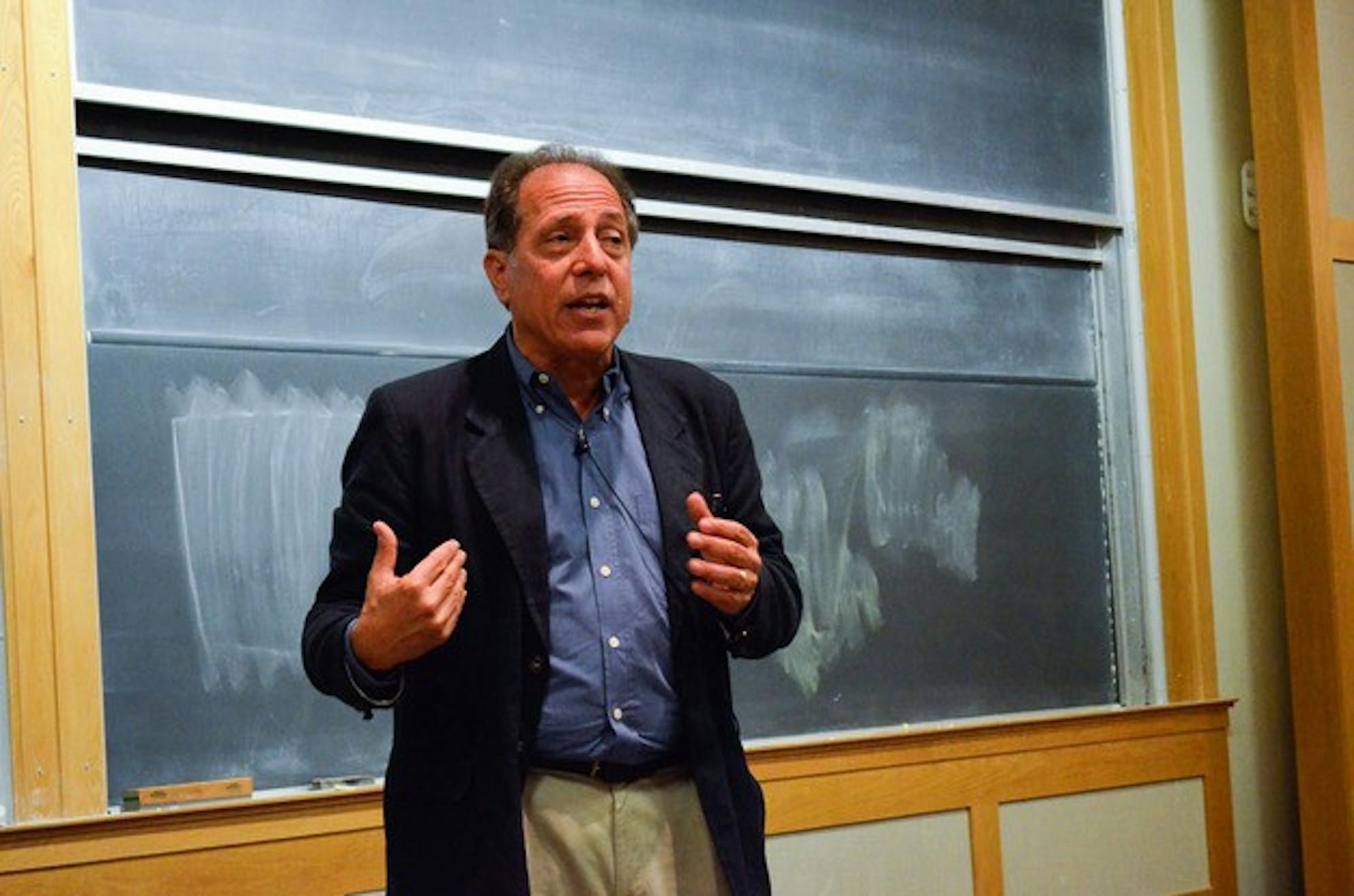Although universities have balanced male and female populations, college campuses are marked by dramatic gender inequalities, Kimmel said.
"You may call it daytime and nighttime," he said, eliciting laughter.
Kimmel said that most men do not think about gender when considering their identities, mistakenly categorizing it as a "woman's issue." Just as the effects of racial identities are often more pronounced for minorities, women feel the effects of gender more than men.
"Privilege is invisible to those who have it," he said.
Men need to find a way to reconcile their definitions of manhood, including honor and integrity, with demands for masculinity. They often put each other down by saying "that's so gay," which is associated more with manhood than with sexuality, Kimmel said.
In his book "Guyland," Kimmel outlines a new stage of development between adolescence and adulthood in both men and women. While in the 1950's, for instance, people often married and began working by age 20, young people today face more uncertainty and a longer transitional period before settling down.
They also enter a different environment, thanks to demographic and economic changes, new ideas about parenting and revolutions in women's lifestyles.
Women have made the notion of gender visible, entering the workforce in larger numbers, demanding a work-life balance and asserting their entitlement to sexual pleasure. Today, men less frequently attend school or work in all-male environments.
But the ideology of college men including rejecting femininity, earning a lot of money, staying steady in a crisis and taking risks is largely the same.
"No sissy stuff. Be a big wheel, be a sturdy oak and give 'em hell," Kimmel said.
Conversations about masculinity must confront male privilege and sense of entitlement, he said.
"White men in North America are the beneficiaries of the single greatest affirmative action program in the history of the world," he said. "It's called the history of the world."
Citing data from 22,000 online survey respondents and 400 interviews, Kimmel discussed the dual nature of the term "hooking up." The phrase is kept deliberately vague so as to allow men to be "studs" and women to avoid being called "sluts," he said.
Adults who over-parent during their child's adolescence are partially to blame for current problems, Kimmel said. Young people enter universities less responsible and less resilient, desperate to prove themselves. College faculty and administrators, too, share blame when they turn a blind eye to initiation rituals.
National Greek system regulations that prevent sororities from hosting parties with alcohol but permit fraternities to do so create unbalanced social systems.
These policies and male attitudes institutionalize a "false choice" for women that extends beyond the college campus, he said. Women are told they can either comply with standards of clothing and behavior set by men, or be excluded altogether citing the example of fraternity brothers guarding the door to their house.
Many students said Kimmel's discussion of privilege being invisible to those who have it stuck with them.
Men's Forum co-president Daniel Calano '15 said the talk will provide a "springboard" for future discussions with the group.
While Calano said some of what Kimmel said is true to the Dartmouth's social scene, the notion that girls must change in accordance with men's expectations is less applicable.
"There's some of that, but there's a lot more tolerance for not existing in a certain stereotype or look or behavior, and for being unique," he said.
Kimmel also emphasized that sexual assault is a man's problem, Calano said.
Andrew McKee '15 said Kimmel was too accepting of the current definition of masculinity.
"I personally think masculinity needs to be redefined its first tenet is to shrug off femininity," he said.
Zachary Myslinski '15 said the lecture touched on several interesting points, but was disappointed that Kimmel did not address differences in race, class or other social identities aside from gender.
The lecture, titled "Boys Will Be Boys: Deconstructing Masculinity and Manhood at Dartmouth," was sponsored by the Center for Gender and Student Engagement, the Dean of the College, the Office of Pluralism and Leadership and the Tucker Foundation. Kimmel is the Center for Gender and Student Engagement's current visionary-in-residence.




